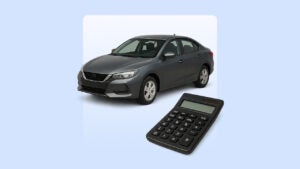How a car loan charge-off works — and how to avoid repossession




Key takeaways
- A car loan charge-off happens when the lender does not believe you will pay off the loan, usually after a period of no payments.
- Potential consequences include damage to your credit score, collection efforts, wage garnishment and repossession.
- If your account enters the charge-off stage, your best option is to continue making payments while working with your lender to get up-to-date on your account.
If you have an auto loan that you’ve fallen behind on, the lender may eventually decide to charge off the loan. A charge-off means the lender assumes you won’t repay the debt. Having a loan charged off does not mean you’re off the hook for repayment, and it doesn’t change the original terms of your loan.
In many cases, the lender may send the debt to a collection agency that will pursue repayment. Understand your responsibilities and what steps will happen before and after the car loan charge-off to minimize the effect on your finances.
What is an auto loan charge-off?
During a car loan charge-off, a company moves an account — such as an auto loan — from its asset column to a liability column for accounting purposes. Often, lenders take this step after unsuccessfully trying to collect on a debt for an extended period. For record-keeping purposes, the lender is declaring the debt uncollectible.
Auto loans generally must be charged off after 120 days of nonpayment. An auto loan may be charged off in as little as 60 days if the lender is notified that the borrower has filed for bankruptcy.
When companies or lenders charge off a debt, it can be written off for tax purposes. However, you still owe the money, and the terms of your loan stay the same. You are still fully responsible for repaying the debt.
How an auto loan charge-off works
When a lender considers an auto loan debt uncollectible, it can choose to begin the charge-off process, which will affect you as the borrower.
- The debt is shifted from asset to liability. Step one of an auto loan charge-off is simply an accounting classification. The lender shifts the loan from its assets column and officially categorizes it as a liability, which means the loan is no longer considered income for the lender. Instead, it is considered a loss.
- Notification of default. Depending on your state, the lender may be required to send you a notice of default and give you a chance to repay the outstanding debt. Not every state requires this.
- A third-party collection agency may take over. When the original lender charges off a loan, it is sent to a third-party collection agency. Collection efforts may include suing you for repayment. If there is a judgment against you, a portion of your wages may be garnished.
- The charge-off is reported to credit bureaus. Once a debt is charged off by a lender, your credit score also takes a hit. This is because the account will be listed on your credit profile as charged off, which is a serious negative mark indicating you did not fulfill your obligation. You may see as much as a 100-point drop in your credit score.
- Vehicle repossession. Most auto loans are secured by the car you purchase with them. This means your car may ultimately be repossessed by a debt collector. Like a charge-off, repossession can impact your credit score for years.
A charge-off can remain on your credit report for up to seven years from the first missed payment. Then it should automatically fall off your report.
Is a charge-off better than repossession?
Both a charge-off and repossession negatively impact your credit score, which may hinder your ability to access loans in the future. That said, a charge-off could impact you less if you can bring the loan current and avoid repossession. You will still be responsible for the outstanding debt balance, as you would with a repossession, unless the lender sells the vehicle and uses the proceeds to cover what you still owe. But you will not have both a charge-off and repossession on your credit report.
Driving a charged-off car
A car loan is typically secured by the vehicle bought with the loan. If you don’t make payments, the lender can repossess and sell the vehicle to cover the loss.
However, even when a lender charges off an auto loan, you may be able to continue driving the car — at least for a little while. In some states, lenders must issue a default notice and give you the opportunity to bring the loan current before repossession. In such cases, you can avoid repossession if you pay off the debt or make satisfactory payment arrangements. However, not all states have this requirement. In those states, your car could be repossessed at any time.
If you used an unsecured loan to buy the vehicle, the car doesn’t back the loan and cannot be repossessed by the lender. However, the lender could still sue you to recoup the losses of the unpaid loan. That could lead to eventual garnished wages or other consequences.
What to do if your car loan is charged off
When your car loan has been charged off, there are several steps you can take. Remember that the car loan charge-off will remain on your credit report for seven years. It will affect your ability to get more car loans. Loan charge-offs may force you to seek bad-credit auto loans with higher interest rates, so resolve the debt directly if you can.
Request a settlement
You can contact the lender or collections agency to ask if you can pay a flat amount to clear up the debt. This payment is known as a car loan settlement. The paid amount is often lower than the remaining balance. Settling a car loan will ding your credit score but may look better to future lenders than leaving the debt unresolved.
Negotiate with your lender
You might also try to negotiate loan terms that are more manageable for you. If you show you are willing to pay off the loan, the lender may be willing to work with you. For instance, the lender may agree to longer terms so the monthly payments are more manageable (though this will mean paying more interest over time).
Run out the statute of limitations
You could also look into your state’s statute of limitations on debt collection. It will tell you how long the lender or a collection agency can continue to try and collect from you. The statute of limitations ranges between three to 10 years from the date of default, depending on where you live.
Be aware that continuing to skip payments will result in additional damage to your credit score.
Reinstate your auto loan
Reinstatement is the process of bringing a delinquent loan current. This means paying all past-due payments, late fees or penalties that you owe. A loan can be reinstated before or after your vehicle is repossessed. If your vehicle has already been repossessed, reinstating the loan will allow you to take back your car and resume payments on your loan.
To begin reinstating your loan, contact your lender and request a reinstatement quote in writing. This quote will finalize the total amount you must pay to bring the loan current and set a deadline for payment. You may be able to negotiate a new payment strategy during the reinstatement process. It’s important to act quickly since many lenders will give you as little as 10 to 15 days to accept your quote and begin repayment.
Pursue bankruptcy
If you’re facing financial difficulties, you may be considering filing for bankruptcy. All charged-off loans must be included when filing for bankruptcy. What happens next depends on the type of bankruptcy you pursue.
Options may include:
- Reaffirming the loan and continuing to make payments.
- Redeeming the car by paying off the loan in a lump sum.
- Surrendering the car to the creditor, who may sell it to pay off part of the outstanding debt or discharge the remainder as part of the bankruptcy.
Refinance your loan
If you’re having trouble paying off your auto loan, auto loan refinancing can lead to more manageable payments. You can refinance your car after a charge-off if you act quickly and show the lender you are willing to work to pay off the loan.
Since the charge-off is likely already on your credit score, it might be harder to refinance, especially if you are looking for lower rates. You may need a cosigner to refinance if your credit score has been negatively impacted by late payments and a charge-off.
Bottom line
When a car loan is charged off, you are still responsible for repaying the debt. You may have to deal with a third-party collection agency. Your car could be repossessed, or you could be sued for repayment. Charged-off accounts also damage your credit score.
If you are behind on auto loan payments, the first step is contacting the lender or collection agency to pay off the debt or negotiate manageable repayment terms. You may even seek a car loan settlement. If you’re being sued for repayment, you should contact an attorney.
Why we ask for feedback Your feedback helps us improve our content and services. It takes less than a minute to complete.
Your responses are anonymous and will only be used for improving our website.




